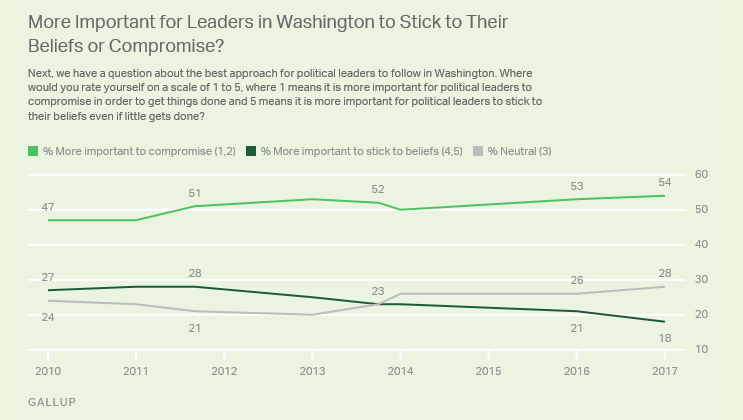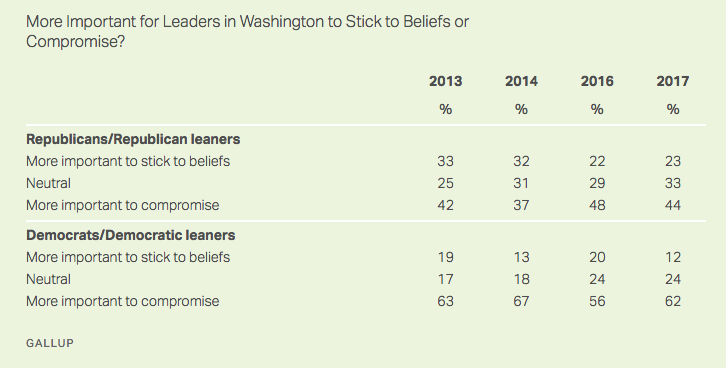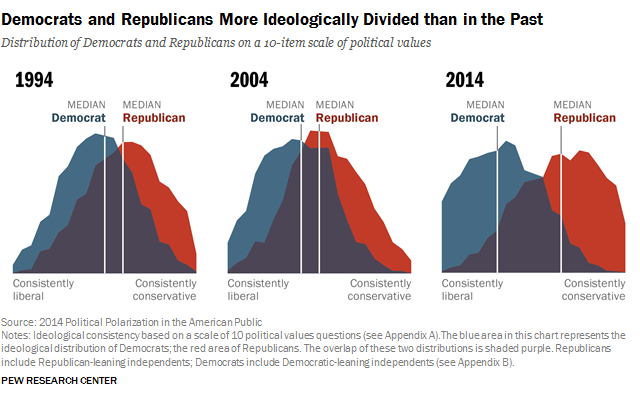Compromise ends in promise
When asked about political leaders in Washington D.C., do more Americans think politicians should stick to their beliefs or compromise?
How accurate was your prediction?
What most surprised you about this data?
In Stranger Things, when Chief Hopper told Eleven about compromise was he talking about Washington politicians, demigorgons, or are both really just the same?
What is the big story this chart tells about American politics?
Why do you think that is?
Describe one consequence of this:
In the comments section below, explain how you would answer the survey question on compromise versus sticking to beliefs?
In general, are politicians more likely to compromise or to stick to their beliefs?
Of the following types of politicians, explain which is the most likely to compromise: POTUS, United States Senator, U.S. House member, Local politician.
What was the last major political issue when U.S. politicians compromised?
Explain whether compromise is generally a good or a bad thing.
What are two examples of political compromises in US history (see video below)?
Were the outcomes of those two compromises generally negative or positive?
During his time in office, Donald Trump's chief of staff, John Kelly said that the cause of the civil war was a lack of compromise. Prominent historians have generally responded to this claim by saying that there had been multiple compromises before the Civil War and that the much more prominent cause of the civil war was, in fact, slavery. Explain whether you agree with John Kelly.
Why do you think the Trump Administration has spent so much time talking about the Civil War?
Do you think it is good to compromise on issues like slavery?
What structures of the American political system discourage compromise?
What structures of the American political system encourage compromise?
Which of those forces do you believe is more powerful?
American politicians were more likely to compromise before the Civil Rights Act of 1964 than they are today. Why do you think that is?
How do you think political partisanship impacts the survey results above?*
How do you think political ideology impacts the survey results?**
According to the data, Conservatives are less open to compromise than liberals. Why do you think that is?
When was the last time you compromised on anything?





